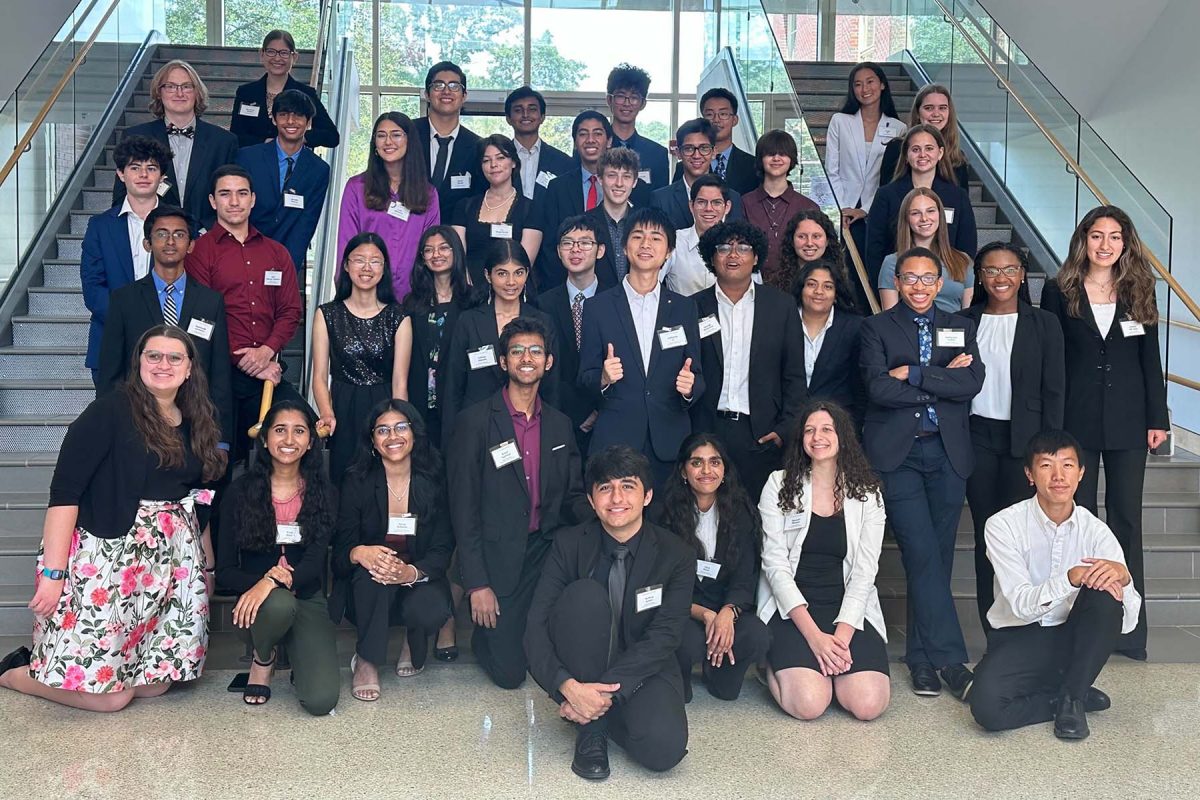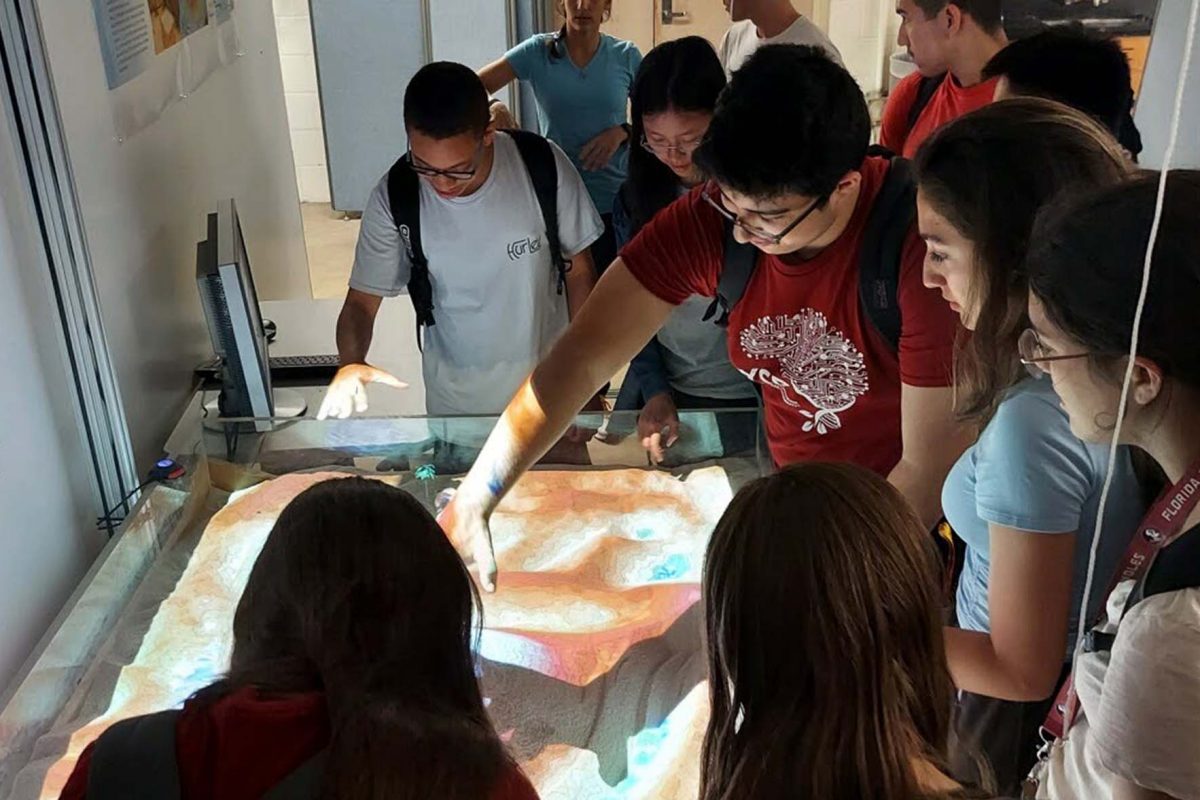FSU’s Young Scholars Program hosts 41st class of high-achieving Florida high school students for summer of STEM
This summer, 40 of the brightest high school students from across Florida are spending six weeks living and learning at Florida State University as part of a highly competitive academic enrichment residency that will prepare them for careers in science, technology, engineering and mathematics.
Since 1983, FSU’s Young Scholars Program, or YSP, has given rising seniors from Florida high schools the chance to work directly with FSU researchers and gain experience in STEM research in advance of attending college.
“The Young Scholars Program is designed to challenge the students’ knowledge and push them to think beyond their high school coursework,” said Hannah Hiester, co-director of YSP. “The goal is to enrich their education and engage these high-achieving Florida high school students in a program that exposes them to STEM research. By working with FSU faculty members, they get frontline exposure to what it is like to work in a lab.”
Each year, YSP receives hundreds of applications, of which 40 students are admitted. All students receive a full scholarship. Each student attends three courses in math, science and computer programming that align with their interests.
“The YSP classes are specifically designed for the program. This allows instructors to develop a course with the goal of providing students with distinctive experiences that will enhance their future participation in college STEM courses and research,” Hiester said.
The Young Scholars Program is hosted by FSU’s Office for STEM Teaching Activities, part of the College of Arts and Sciences. YSP is open to rising high school seniors with at least a 3.0 unweighted GPA and who have scored in the 90th percentile in the math section of a nationally standardized exam, have taken or are enrolled in pre-calculus and maintain permanent residence in Florida.
“FSU is an amazing environment where I can learn, grow and hopefully impact others the way professors and students here have impacted me.”
– Rohil Agarwal, YSP student
Professor of Psychology Michael Kaschak, who specializes in cognitive science, has welcomed YSP students into his learning, memory and language lab for the past two summers to work with undergraduate and graduate students conducting research.
“The students are eager to jump right in,” Kaschak said. “They collect and analyze data from human participants. They work on one project primarily, which they present at the end of the program. But they also collaborate with other students on different projects, which gives them a well-rounded research experience.”
Layla Elnasser, a student in the 2023 YSP cohort, has been able to dig deeper into her YSP coursework than she typically does in high school classes, thanks to the intensive format.
“It’s one thing to approach academia independently through studying and taking tests on your own, but working with data and bouncing around ideas with my lab mates has been so amazing,” Elnasser said.
 Both in and outside of the classroom and lab settings, 40 high-achieving high school students in the Young Scholars Program are fully immersed in college life during their stay at FSU. (Photo: Young Scholars Program)
Both in and outside of the classroom and lab settings, 40 high-achieving high school students in the Young Scholars Program are fully immersed in college life during their stay at FSU. (Photo: Young Scholars Program) FSU’s Young Scholars Program gives rising seniors from Florida high schools the chance to work directly with FSU researchers and gain experience in STEM research in advance of attending college. (Photo: Young Scholars Program)
FSU’s Young Scholars Program gives rising seniors from Florida high schools the chance to work directly with FSU researchers and gain experience in STEM research in advance of attending college. (Photo: Young Scholars Program)Both in and outside of the classroom and lab settings, the YSP students are fully immersed in college life during their stay at FSU. Attendance at regularly scheduled activities — classes, labs, research projects, evening meetings and weekend activities — is mandatory.
Students, even local ones, live in an FSU residence hall for the duration of the program while navigating campus on foot and using FSU transportation to get a picture of what life is like at a Research 1 institution.
“I love the atmosphere here. All the people are amazing,” said YSP student Rohil Agarwal. “There are people at FSU doing things that I can’t even comprehend yet. There are students doing research and making social change. FSU is an amazing environment where I can learn, grow and hopefully impact others the way professors and students here have impacted me.”
YSP typically ends with a research symposium where students present their research project findings to STEM faculty, graduate students, research staff from FSU and their fellow participants in a poster session. Students also submit a final research portfolio before the end of the program.
“The Research Symposium, modeled on poster sessions held at professional STEM society meetings, allows students to present their work to the FSU STEM community,” Hiester said. “This entire experience, from joining a research lab to presenting their work at the research symposium, prepares the students to hit the ground running when they enter a STEM major as university freshmen by understanding the culture, expectations and products of university research.”
For more information on the Young Scholars Program, visit ysp.osta.fsu.edu.
